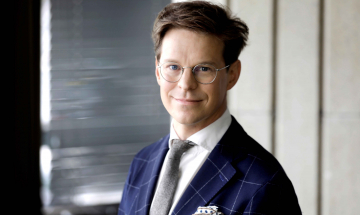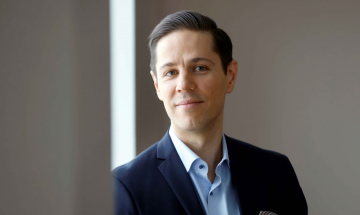
Decision time postponed? The EU’s balancing act in times of war and energy crisis
September is always a highly anticipated month in the “Eurobubble”: since the traditional summer break of the EU institutions takes place in August, it is the time when EU politicians and officials, as well as journalists and lobbyists return to Brussels resume their work. It is, however, also the time of one of the pivotal moments in the EU calendar: the State of the European Union Address. As part of this exercise, the President of the European Commission speaks to the European Parliament to defend the EU’s record and declare new initiatives.
Rarely has a “SOTEU” speech been so highly anticipated as this one. It was the first since the Russian invasion of Ukraine that brought devastation and misery to millions of Ukrainians, threatened Europe’s security order, and put the energy security of the continent at risk. European Commission President Ursula von der Leyen (EPP) was not just expected to outline her response to the crisis facing the Union, however, but also how her emergency response would fit into her wider ambitions for a digital, green, competitive and global EU. Against this background, von der Leyen’s third State of the European Union Address was seen to be the most consequential one of her tenure. Did she rise to the occasion?
Opinions are divided. This is especially true of the Commission’s energy price crisis package: while von der Leyen presented measures to save energy and curb the excess profits of energy producers, she shied away from proposing one of the main measures discussed in EU corridors – a price cap on natural gas. Many in the Strasbourg plenary hall and behind the screens had been hoping to hear exactly that from her. The German Christian democrat appeared to be aware of these expectations: she thus stressed that the Commission would “keep working to lower gas prices”. Yet at this stage, this promise is unlikely to be of great comfort to EU citizens and companies who continue to worry about whether they can heat their homes and keep production going this winter. Rather than the coup that many Europeans had hoped for, it appears that the uncertainty over dealing with the energy price crisis will be prolonged as the EU heads towards the colder months of the year.
It appears that the uncertainty over dealing with the energy price crisis will be prolonged as the EU heads towards the colder months of the year.
The sense of incompleteness over the energy package overshadowed many of the other policy announcements made by von der Leyen – despite their significance in both substance and tone. Chief among those were plans to establish a European Hydrogen Bank with an investment capacity of EUR 3 billion and the upcoming presentation of a Critical Raw Materials Act intended to facilitate the access of EU industry to important resources. Von der Leyen also recognised the challenges faced by companies in recruiting highly skilled workers and pledged to tackle this problem in 2023 as part of a “Year of Skills” initiative. Her ambitions to strike a balance between returning a “Maastricht Spirit” on public debt while maintaining high levels of investment into the digital and green transition may likewise become of great importance to the EU in the years to come. As of yet, however, it is still to be seen if the action will match the rhetoric.
The mixed reactions to the Commission’s policy vision were offset by two very important political declarations: the first was von der Leyen’s endorsement for a European Convention to open and revise the EU’s constitutional treaties. This was a key demand of the Conference on the Future of Europe, a grassroots democratic exercise undertaken by the EU over the course of the past year. Many national leaders had been lukewarm on this proposal – including Finland’s own Sanna Marin (SDP) who had only warned MEPs on Tuesday of the risks of treaty reform in times of crisis. For von der Leyen to actively support a fundamental reform of the EU was, therefore, a bold step.
Most significantly, however, this State of the EU Address will be remembered for the powerful show of solidarity with Ukraine that von der Leyen and the Commission displayed. As the crunch of the energy crisis approaches, many have come to fear a backlash among Europeans that could see support for Ukraine’s struggle of liberation and sanctions against Russia weakening.
Yet von der Leyen left little doubt that for the EU, backing down is not an option: “I want to make it very clear, the sanctions are here to stay. This is the time for us to show resolve, not appeasement.” Words that were not only heard by MEPs but the Commission’s guest of honour: Ukraine’s First Lady Olena Zelenska who had travelled to Strasbourg for the occasion of the speech. In emphasising in such unequivocal terms that high energy prices would not drive a wedge between the EU and Ukraine, von der Leyen has set the bar for the Union. It is now up to the EU’s politicians, but also its citzens and industry at large, to honour this existential commitment during a challenging winter.
Further information:
Henrique Laitenberger, Head of EU Affairs, tel. +358 (0)40 353 1326, henrique.laitenberger@teknologiateollisuus.fi, Twitter: @ToEnLaiten


